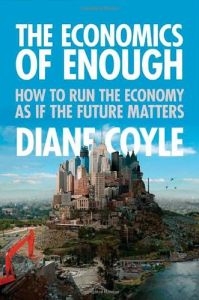Join getAbstract to access the summary!

Join getAbstract to access the summary!
Diane Coyle
The Economics of Enough
How to Run the Economy as If the Future Matters
Princeton UP, 2011
What's inside?
The world economy is damaged. How can society fix it, ethically, to make sure everyone has enough?
Recommendation
Economist Diane Coyle argues that the 2007-2008 financial crisis was not an isolated event but a symptom of greater issues in the global economy. The forces driving these issues include social progress, climate change and technology, particularly the shift to a knowledge- and service-based economy. In this impressive, strikingly honest book, Coyle works hard to avoid clichéd binaries (left versus right, market versus government) and to base her analysis on research and observation. Some of her insights are useful, and her section on measurement is nicely original. However, her overall call for action is not as fresh, practical or persuasive as her analysis of the problems at hand. Nonetheless, getAbstract recommends this earnest work of economic inquiry to executives, policy makers and all those who believe that having an ethical society remains a viable goal.
Summary
About the Author
Diane Coyle owns Enlightenment Economics, a consultancy focusing on technology and globalization. She is also the author of The Soulful Science.






















Comment on this summary